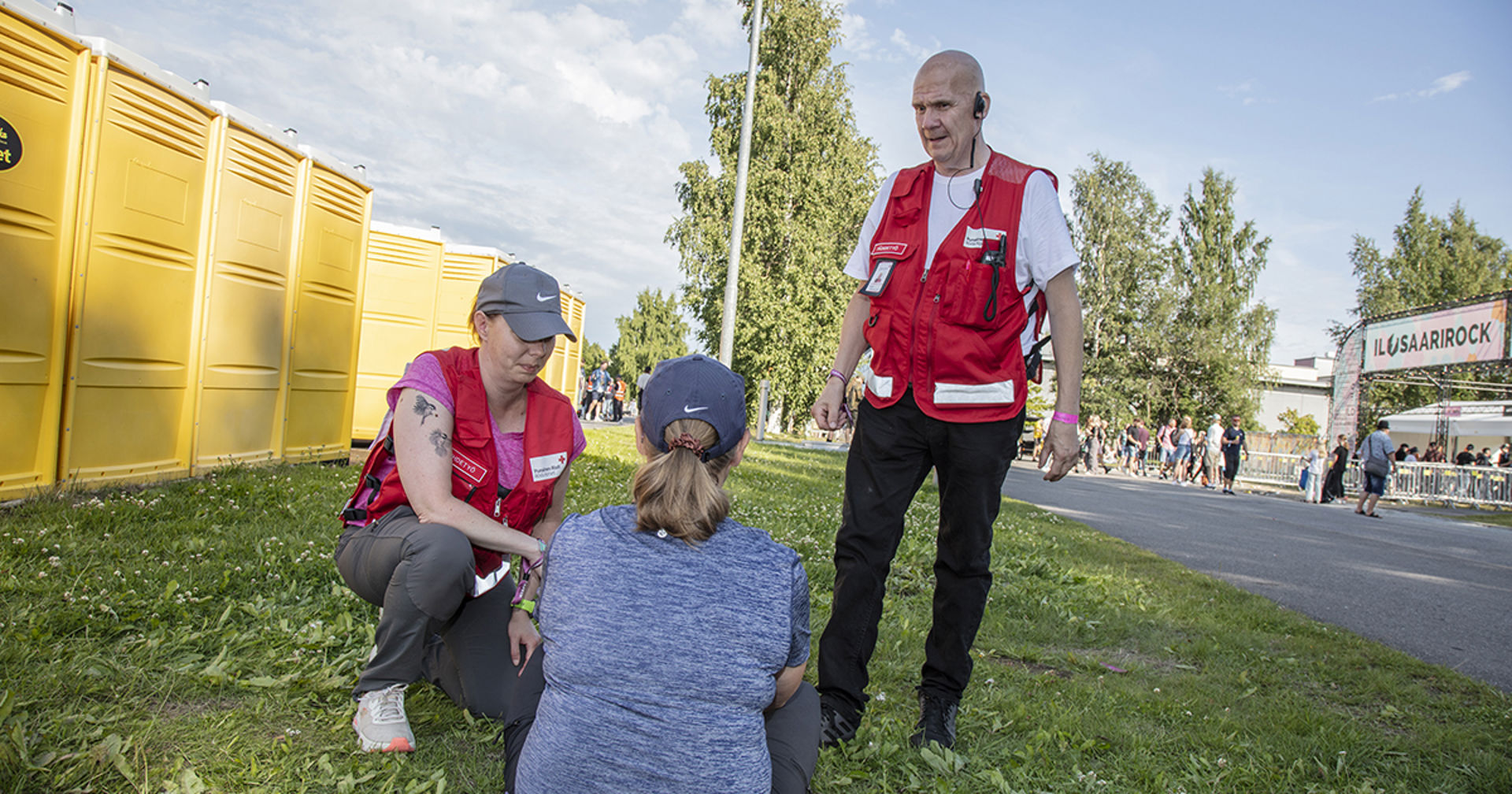Red Cross: mental health challenges are visible at sobering stations at festivals – it is important to take care of your intoxicated friends

The summer is a more difficult time than usual for those who suffer from mental health challenges, which can also be seen at the Red Cross sobering stations at festivals and summer events. You should not leave your distressed or intoxicated friends alone.
There are Red Cross sobering stations at approximately 20 festivals and summer events this summer. At the sobering station, trained volunteers map the situation of intoxicated persons, take care of their wellbeing and safety while they sober up and help them find further assistance, if necessary.
According to the feedback collected from volunteers, more and more visitors at sobering stations have mental health challenges. This development has occurred gradually over the past few years.
“In the summer, many people who suffer from mental health problems are in a difficult situation, because some of the services are closed and there is no regular contact with health care or everyday communities. The mental health challenges can be seen when people come to the sobering station in severe distress, for instance. The noise, large number of people and unexpected social situations in the festival environment can already cause mental health symptoms in themselves, but intoxicants also play a major role,” says Kati Laitila, Health Promotion Specialist of the Finnish Red Cross.
According to Laitila, some of the visitors at sobering stations say that they are not sure if they can use alcohol with their own medication. Some independently decide to not take their medication during the festival, for instance. Stopping the medication in a sudden and uncontrolled way may have unexpected consequences.
At the Red Cross sobering station, trained volunteers monitor people’s condition while they sober up and debrief the situations through discussion.
“We ask people what happened and talk with them about how they can make sure that the same thing will not happen again tomorrow. If necessary, we find suitable support channels and we always make sure that when someone leaves, they have a reliable person who can support them nearby. The goal is to make life seem brighter when they leave the sobering station,” Laitila says.
Most of the visitors at the Finnish Red Cross sobering stations are young adults in their twenties, but younger and older people also seek help. Last summer, the sobering stations had approximately 250 customers in total. In addition to them, volunteers met with nearly 400 close ones of those sobering up.
Take care of your friends
Laitila emphasises that you should never leave a friend who is intoxicated or in distress alone at the festival.
“It’s important to have reliable friends close by who can take care of you. It’s not patronising to say that it’s time to drink some water before we go to the next gig. You can help a friend who is sad or in distress by asking how they are doing. It makes them feel safe,” Laitila reminds people.
It is important to take care of your friends, because if people are in a bad state, they may easily become a victim of robbery or sexual exploitation. If someone is heavily intoxicated, their condition must be monitored, and if they are asleep, they should be put in the recovery position while ensuring that their airways remain open. It is also important to check regularly that you can wake your friend up.
Often intoxicated people are left alone when the group of festival visitors splits up to see different gigs. Laitila recommends that one can bring their intoxicated friend to the Red Cross sobering station before the gig and come back afterwards to ask how they are doing.
Four tips for visiting a festival
- If you drink alcohol, remember moderation. Have some water in between!
- Avoid mixing intoxicants. Do not use new unfamiliar substances.
- Take care of other people, too. If you notice that your friend is confused or in distress, ask how they are doing.
- If someone passes out, place them in the recovery position and check regularly that you can wake them up. Do not leave your friends alone.
